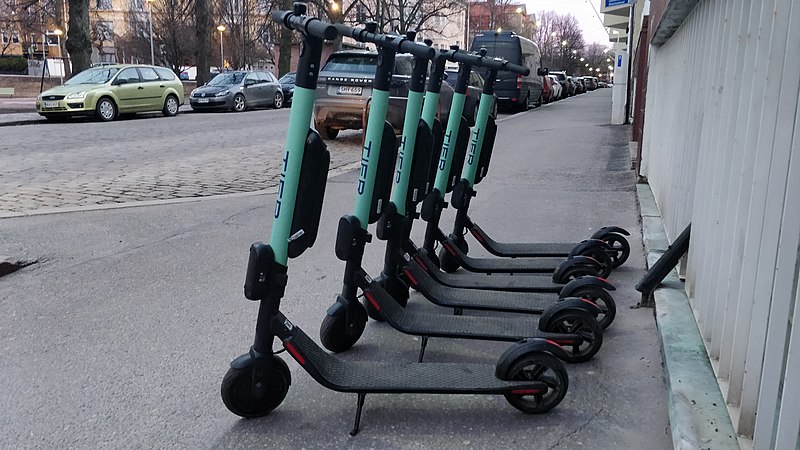Rentable scooters show future of transportation
Electric scooters in Finland provide clean and safe transportation alternatives.
April 8, 2019
The future of transportation has arrived, and despite how many thought 2019 would be like twenty years ago, it is not hovercrafts, but instead electric scooters. The motorized scooters, rentable via mobile phone app, cost $1 to unlock and around 15 cents per minute to ride, and have been hailed as the next step in innovative and environmentally-friendly transportation.
The scooters build off the idea of Capital Bikeshare and other bikeshare systems, which exploded a few years ago as an easy way to get from place to place, especially in downtown or city areas, while allowing users to leave the bike docked at any station. With the scooters, however, no dock is necessary–just park the scooter upright and drop it off on any curb you like.
“The scooters are a really cool next step for transportation,” junior Leeza Mculsky said. “With these new companies, finding a fast, environmentally friendly way to get home has never been so easy.”
L.A. start-up Bird Rides, along with San Francisco based Lime, currently dominate the emerging market with ride-hailing apps Uber and Lyft trailing behind with their own scooter pilots. Bird and Lime both reached the 10 million ride milestone earlier this year.
In a statement following Bird achieving 10 million rides, CEO and founder Travis VanderZanden extended thanks to Bird’s city partners, riders, chargers, mechanics and employees for their help in starting the “transformation of urban transportation into one that is clean, convenient and affordable.”
The scooters gained popularity over the summer, finding homes in over 100 cities nationwide, but not all cities welcomed this new technology with open-arms. It prompted some cities to outright ban the technology or begin working with companies in pilot-programs to figure out how exactly cities can manage these new vehicles all over the streets and sidewalks.
According to an article posted on technology review site Tom’s Guide, cities such as Milwaukee and Boston have asked the companies to remove their scooters until frameworks can be made to ensure safety for riders and establish some sort of oversight group. The companies have also faced issues regarding proper permitting and permission to expand their services, and in some locations simply deployed hundreds of scooters overnight without any warning.
In response to city bans and continued scrutiny in the feasibility of bringing the scooters to more cities, the companies have set up guidelines for unlocking, riding and docking. Users are asked to follow all traffic laws (including riding in the bike lane), to wear a helmet and to be mindful of the vehicles around them.
“When I was a kid, I would ride my electric scooter to get around, so I’m really happy to see this as a micro-mobility solution,” junior Nikka Givpoor said. “They’re fast and environmentally friendly, so really the question is why didn’t this become a thing sooner?”


